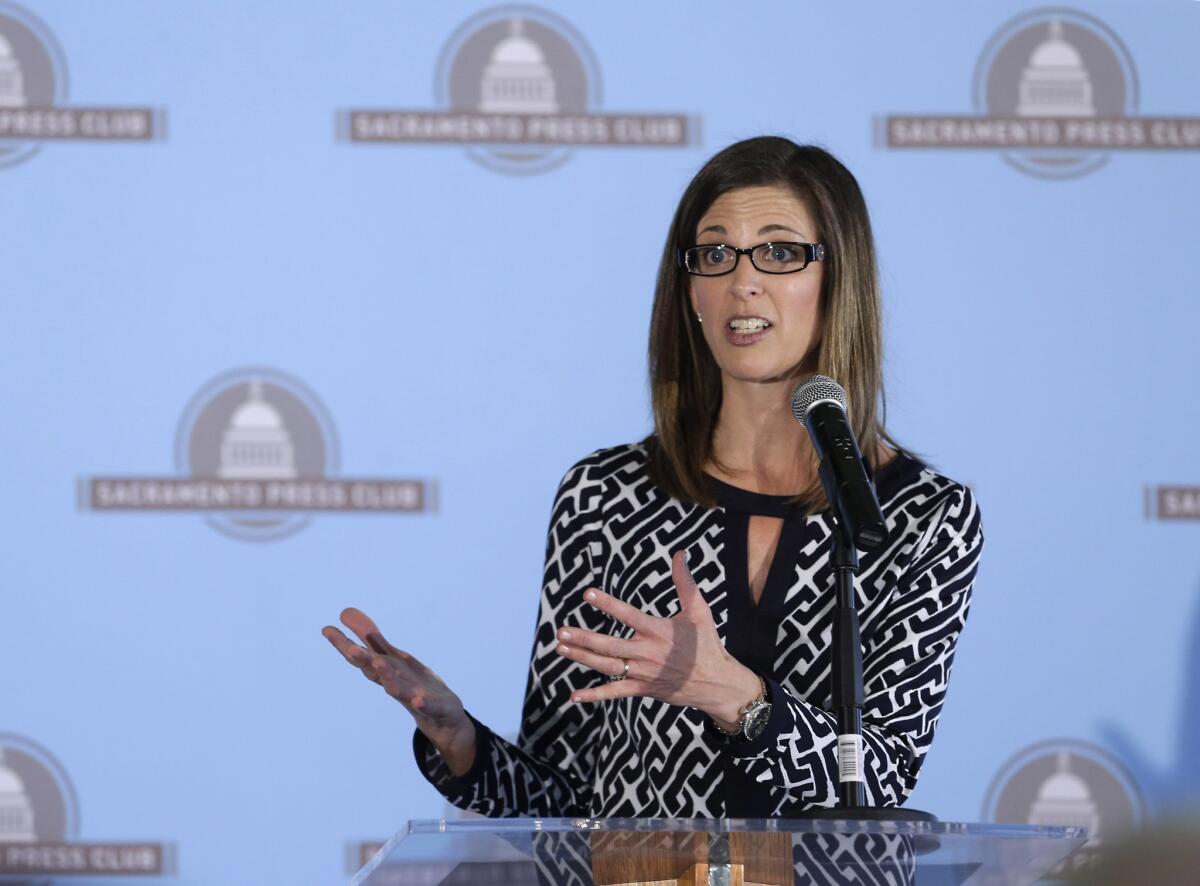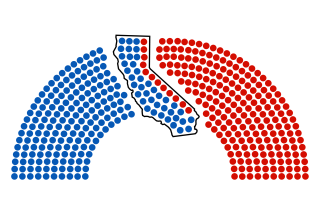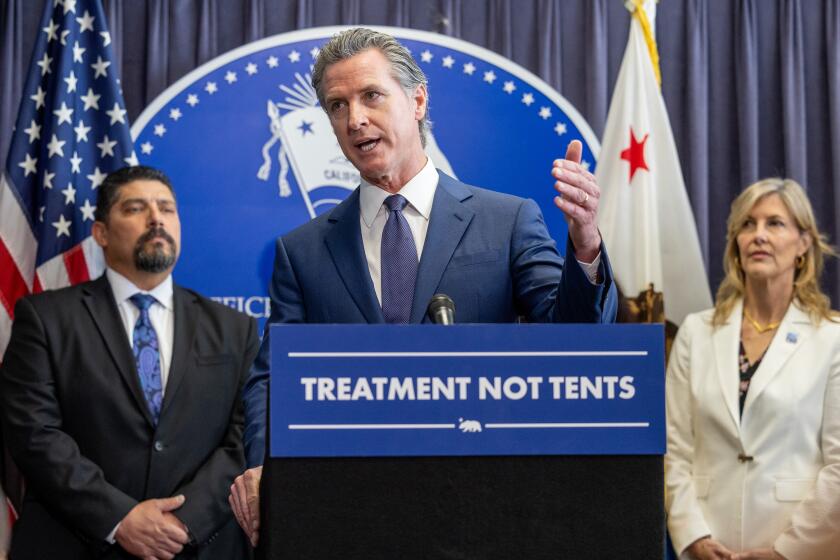Assembly Republicans revamp caucus operations in bid to woo voters

Republicans in the California Assembly, apparently resigned to the party’s diminished influence in Capitol policy debates, will announce Thursday that they will focus less on trying to sway Democratic legislators and more on winning over voters.
The lawmakers said they would enlarge their communications operation, adding specialists in social media and in outreach to Latinos and Asian Americans.
As part of the reorganization, they will consolidate some functions and eliminate eight consulting and clerical positions.
The revamp is the most recent sign of the embattled Republican Party’s efforts to claw back to relevance in a state, and state Legislature, dominated by Democrats.
“We have to accept the playing field for us has changed and put our resources into tactics that move the ball for Republicans,” said Assembly GOP leader Kristin Olsen of Modesto.
“Unless we are getting outside of this building and telling Californians what we are doing, we’re really not going to make a whole lot of progress in resonating with voters,” she said.
She hopes a more robust communications team will do a better job of promoting Republican ideas to voters the party has struggled to win over: young people, minorities, even independents and registered Democrats.
“We want to get on offense, not just playing defense,” Olsen said. “And we think we have winning ideas, winning solutions that are good for all Californians.”
GOP Assembly members recently rolled out a package of education bills that includes proposed changes in the teacher layoff system and a measure that would bar last-minute overhauls of bills before they are put to a vote.
Although the proposals have little chance of passing the Legislature, Republicans hope that focusing on such matters — rather than on divisive social issues — may help broaden the party’s appeal.
The changes were not coordinated with Republicans in the state Senate, who are not altering their own operations.
“We’re focused on providing leadership for our 14 senators,” said Peter DeMarco, a spokesman for the Senate Republican caucus. “We don’t have any plans to do any sort of reorganization at this time.”
Jim Brulte, chairman of the state party and a former legislator, praised the caucus’ effort as “long overdue.”
California’s demographics have changed, he noted, as has technology. “The methods of communication that are used today in politics and government — many of them didn’t even exist back when I was the Republican leader of the Assembly,” he said.
In 1992, when Brulte held that position, 38% of California’s registered voters were Republican. That share plunged to 28% in last year’s election.
The number of Republicans in the Assembly dropped from 41 in 1995 to 28 today. With a Democratic governor and strong Democratic majorities in both houses of the Legislature, the GOP’s ability to shape bills has waned substantially.
“It’s not like the Democrats are going to let them move policy in any significant way,” said Dan Schnur, director of USC’s Jesse M. Unruh Institute of Politics. It makes sense, he said, for the Republicans “to focus their efforts on building public interest and public support for their broader goals.”
The whittling of the policy team will mean a decrease in the voluminous analyses churned out by caucus staff, which are meant to inform lawmakers’ votes on legislation.
Lanhee Chen, a fellow at the Hoover Institution at Stanford University, who served as a consultant to the Republicans in their reorganization, said the policy staff would now be more selective.
“The key is how do you identify those issues that are truly important as a governmental organization,” Chen said.
Assembly Speaker Toni Atkins (D-San Diego) had little to say about the opposing party’s revamp.
“The speaker does not interfere with the inner workings of the minority caucus,” said John Casey, a spokesman for Atkins.
Follow @melmason for more on California government and politics.
More to Read
Start your day right
Sign up for Essential California for news, features and recommendations from the L.A. Times and beyond in your inbox six days a week.
You may occasionally receive promotional content from the Los Angeles Times.







